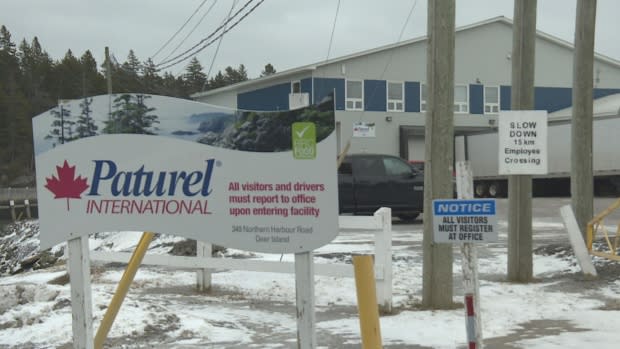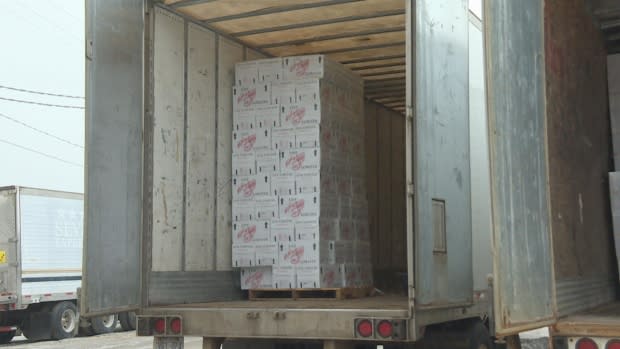Community still recovering, but hopeful after fire that changed Deer Island
Nearly a year after a devastating fire wiped out a lobster processing plant on Deer Island, along with dozens of jobs, the company and the community are still recovering.
In the early hours of March 1, 2018, the Paturel International lobster processing plant burned to the ground, taking about 100 jobs along with it.
On an island with a popualtion of around 700 people, the loss was devastating.
Although the plant hasn't been rebuilt, the remaining branch of the company that deals with live lobster is booming; benefiting from a shift in the lobster market.
"In the year since the fire we've had the best year we could have hoped for," said Stuart McKay, general manager for Paturel International.

McKay says the industry has shifted to favour live lobster, a product offered by their remaining facilities.
American tariffs on seafood levelled at the European and Asian markets by President Donald Trump have also dramatically increased the demand for Canadian lobster.
"It has helped us tremendously," said McKay.

Patural International currently employs 81 people, according to McKay, still making it the largest employer on Deer Island.
He couldn't say if the company will rebuild the processing plant, noting much of that decision weighs on insurance proceedings that are still ongoing 11 months after the blaze.
In the days that followed the fire, MLAs and government officials promised the company would rebuild. Paturell stated it would likely be two years before any rebuild would take place.
Workers relocated
Following the fire, there was concern for around two dozen temporary foreign workers who had Paturel-specific work permits.
In the wake of the fire, many of them worried they would have to leave Canada, but McKay said companies and government came together to ensure that didn't happen.
"I can hold my head up and I can say, 'I think everybody was OK in the end,'" said McKay.

"I think every employee that was here, they were positioned somewhere between local businesses and with other companies ... that could take them," said McKay. "It was one of the biggest concerns I had at the time, was to make sure the people were looked after."
Still recovering
But despite the rosy outlook for the company in the wake of the increase of the lobster market, Deer Island has yet to fully recover.
"It's not just people who were employed; it's also people who came to the island for employment," said Katherine Landry of the Deer Island Chamber of Commerce. "The ferry was full in the morning to overcapacity of people coming to the island to work."
"The economic impact trickled down to everything on the island," he continued. "From housing prices, to rental prices, the sale of gas, food in the stores."

"There was an increased number of children in the schools, more people attending church, just every facet of your community," said Landry. "When you're only a community of a little over 700 and you increase it by 130 hard-working people from off-island that would move there, that's a huge effect."
In the months since the fire, Landry said classrooms have shrunk, along with sales at local stores and rents have gone down.
"It's pretty dramatic," said Landry, who is also a real estate agent on the island.
"I always used to be able to say to somebody, 'If you buy this property and it's got more capacity than you can use, there's no problem to rent it, people are lining up,'" said Landry. "I just can't say that anymore."

But it's not all doom and gloom on Deer Island. Landry echoed McKay in looking at the lobster boom as a sign of a turnaround and, despite the losses last year, she has a large degree of optimism for the future.
"There are several projects that are being pushed ahead on the island," said Landry, referencing the growth in the aquaculture sector. "And I think if we look from that fire to a two-year period, we would see not only recovery but advancement."

